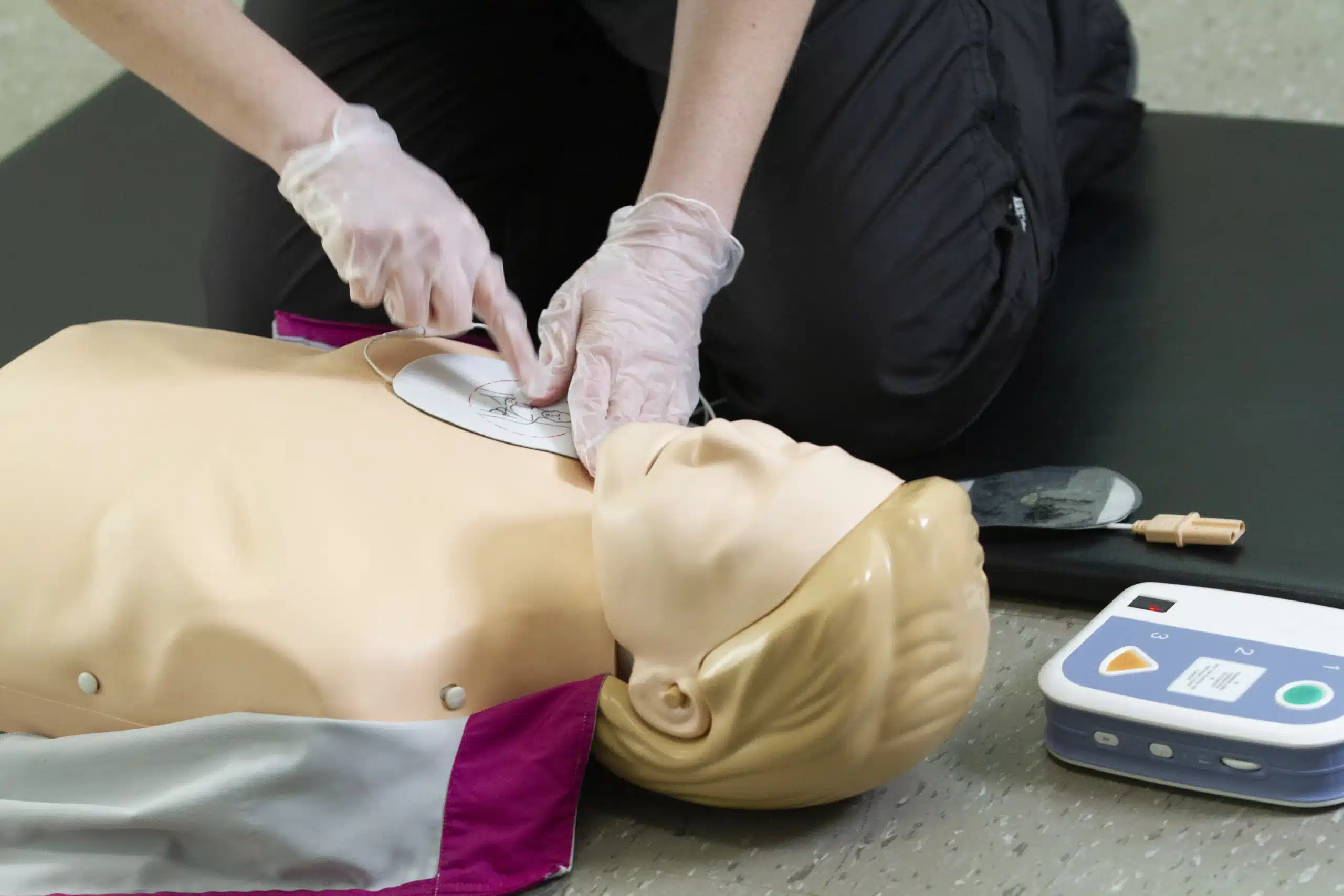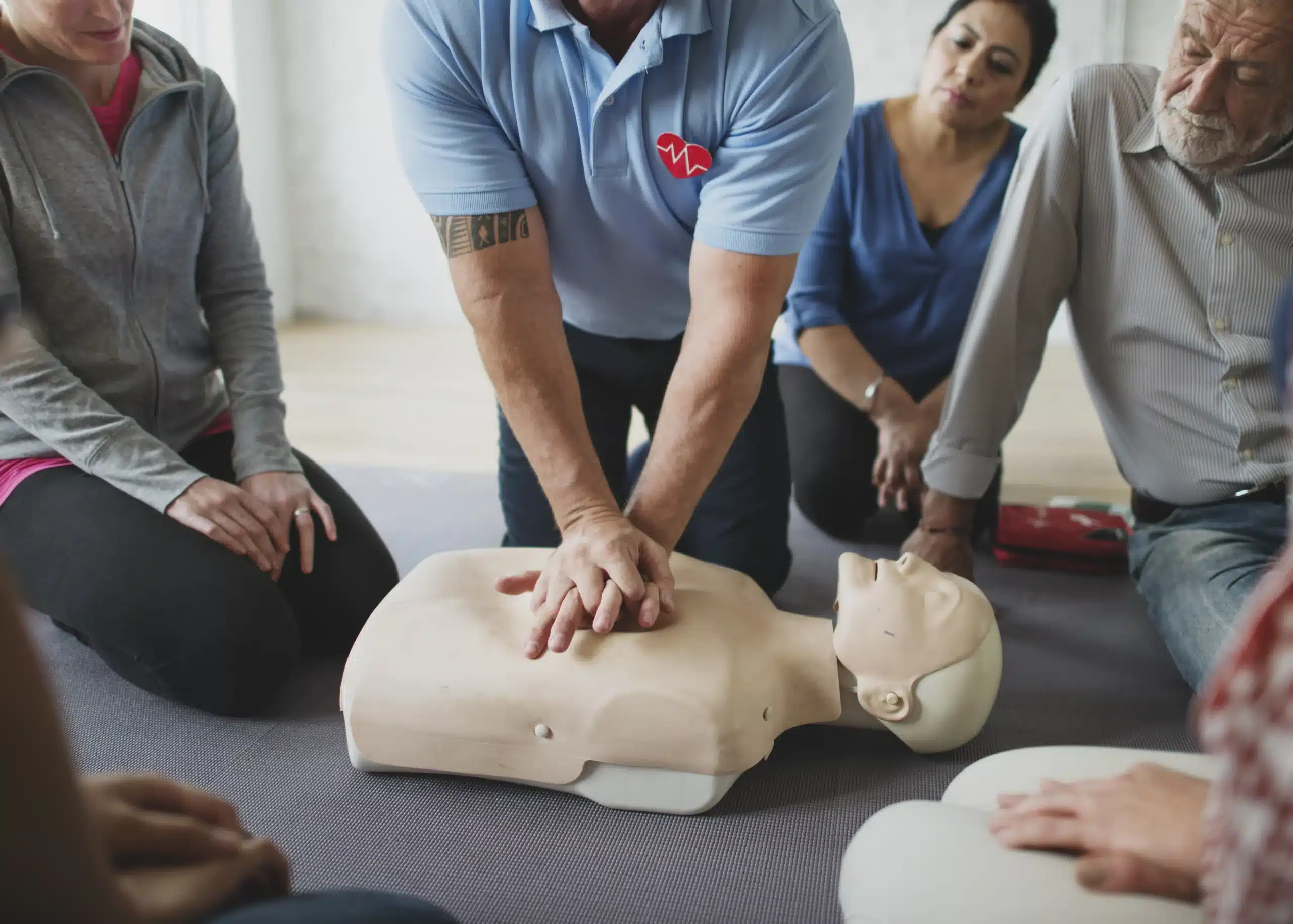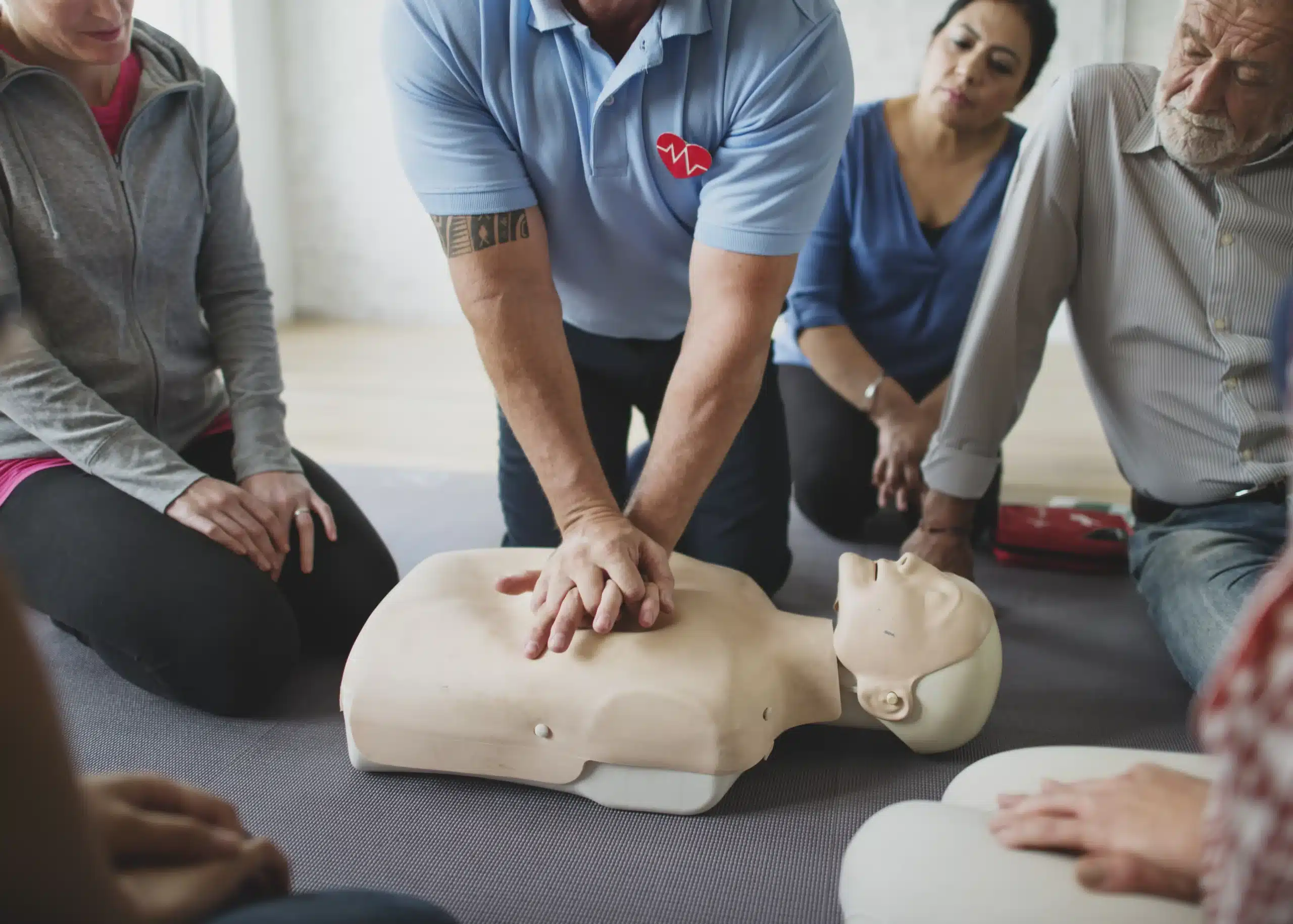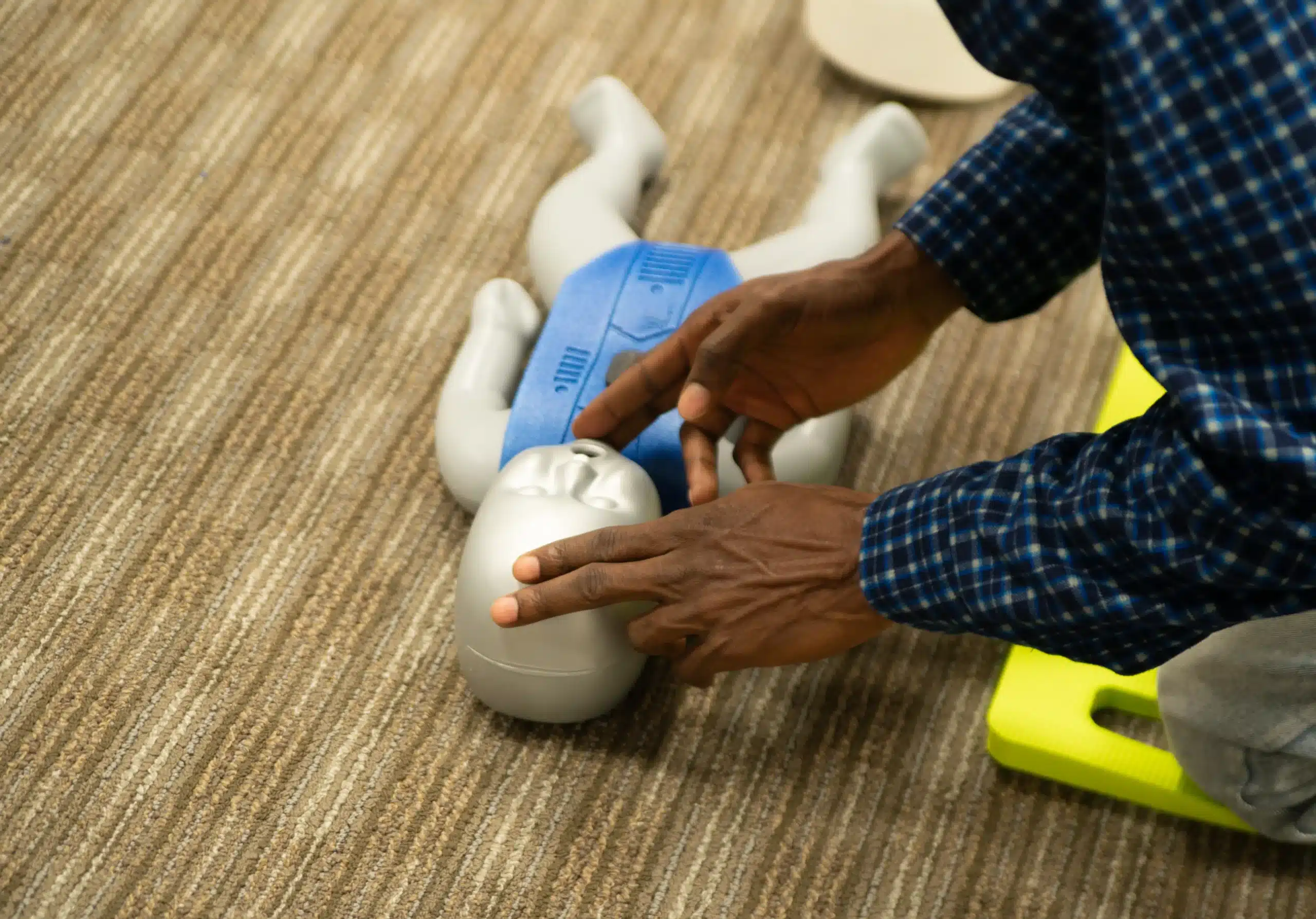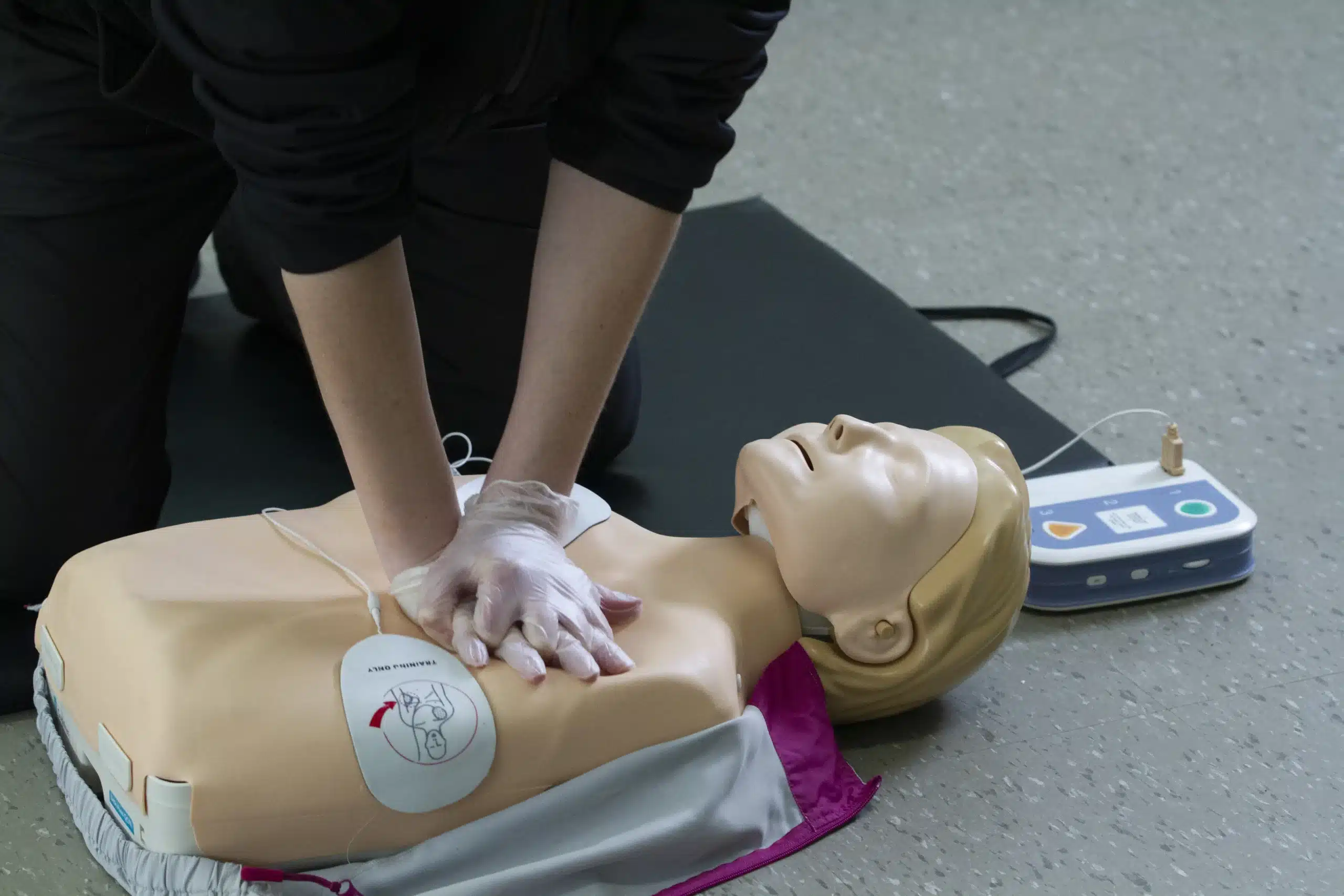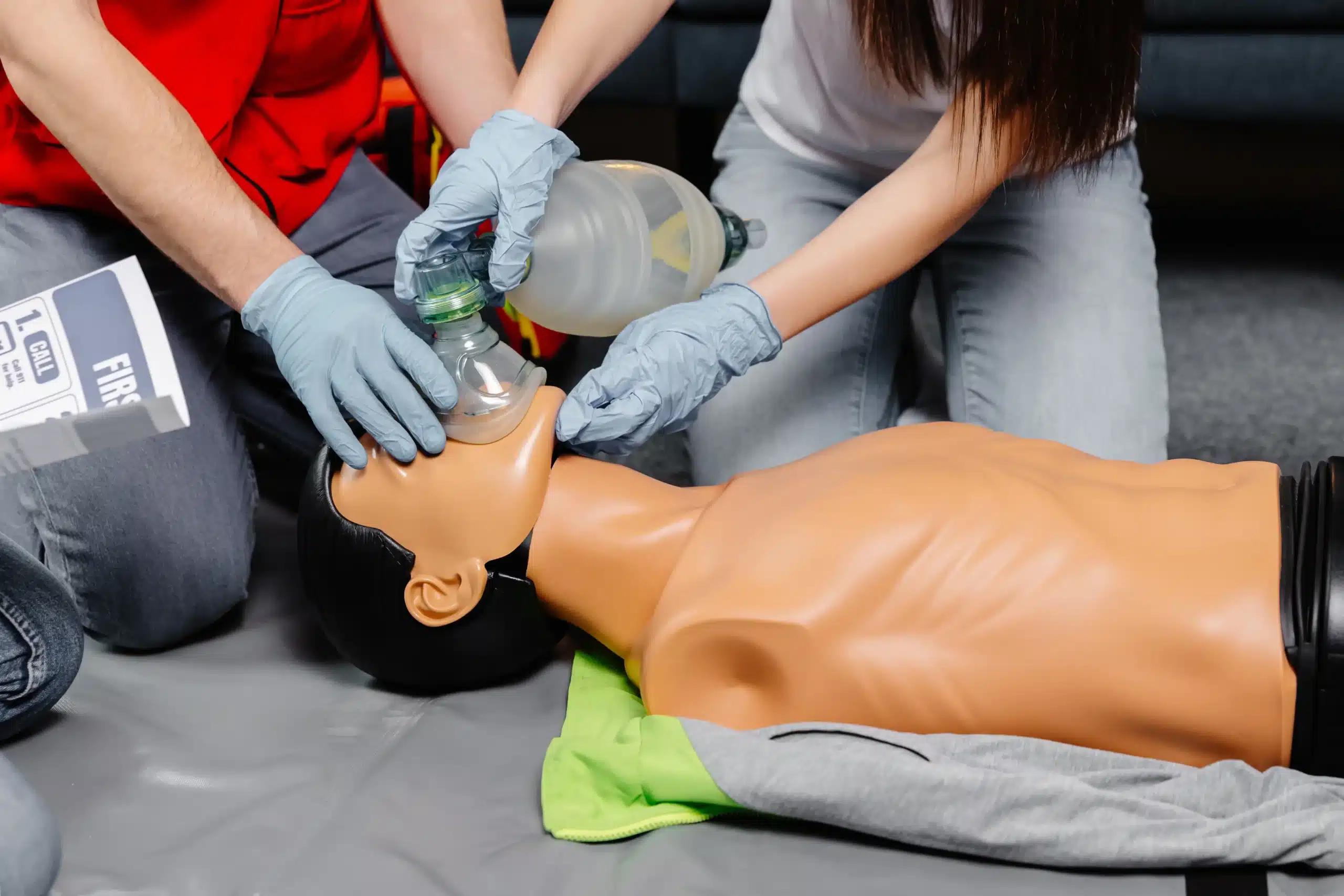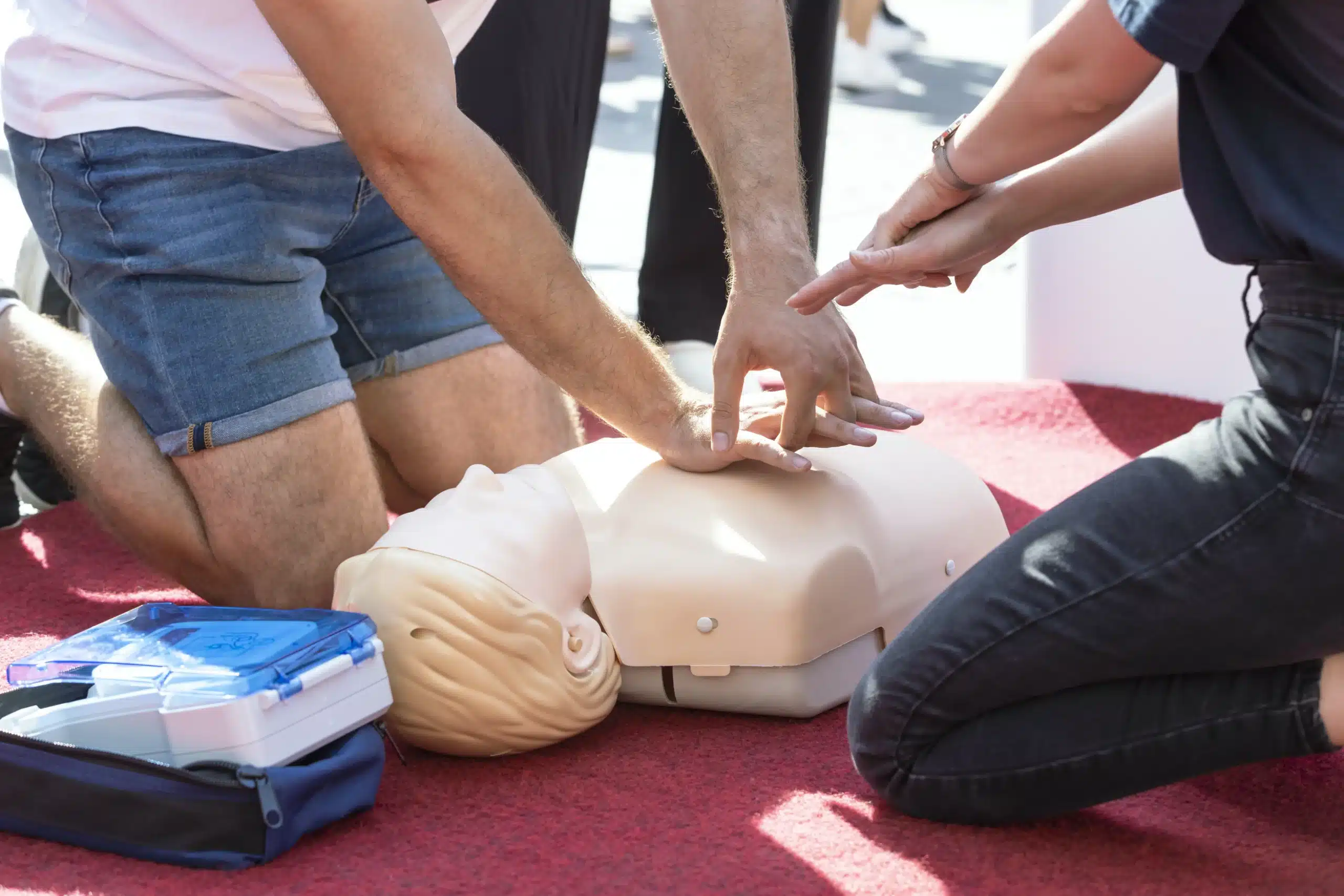Seconds count in emergencies, and as a healthcare provider in San Jose, you know that better than anyone. BLS certification equips you with the skills to respond quickly and effectively when lives are on the line. This guide is designed to be your comprehensive resource for BLS for healthcare providers in San Jose. We’ll demystify the certification process, explore the core components of BLS, and provide practical tips for finding the right training program and overcoming common scheduling hurdles. Whether you’re looking to get certified, renew your certification, or simply brush up on your skills, this guide will empower you to confidently provide life-saving care.
Key Takeaways
- BLS certification empowers you with essential life-saving skills. From CPR and AED use to airway management, BLS training prepares you to respond effectively in emergencies. Explore various course formats and schedules to find the best fit for your learning style and busy lifestyle.
- Finding the right BLS course in San Jose is easier than you think. Compare local providers like Campbell CPR Classes and other training centers offering AHA-certified courses. Consider factors like cost, location, schedule, and class size to make an informed decision.
- Staying current with BLS guidelines is key to providing the best possible care. Renew your certification every two years and consider additional continuing education opportunities to refine your skills and stay up-to-date with the latest life-saving techniques.
What is BLS Certification?
BLS certification is essential for healthcare providers. It equips you with life-saving skills like CPR, using an AED, and airway management, increasing your confidence and improving patient outcomes. This certification demonstrates your commitment to providing high-quality care and prepares you to respond effectively in critical situations.
What is BLS & Why is it Crucial?
BLS stands for Basic Life Support. It focuses on providing immediate care to someone experiencing cardiac arrest, respiratory distress, or an obstructed airway. BLS certification teaches you the skills to perform CPR, use an AED, and clear an obstructed airway. These techniques can significantly improve survival rates during emergencies. Having these skills allows you to confidently respond and potentially save lives. Learn more about BLS classes in San Jose.
Key BLS Skills
BLS training provides the skills to quickly assess a patient’s condition, perform high-quality CPR, effectively use an AED, and manage a patient’s airway. These skills empower you to act quickly and decisively when seconds count. You’ll learn to recognize the signs of a medical emergency and provide prompt intervention. For more information on BLS certification, visit Sunnyvale CPR Classes.
BLS in Healthcare
BLS is the foundation of resuscitation training for healthcare professionals, including nurses, physicians, EMS professionals, and other healthcare and public safety personnel. It’s a fundamental requirement for anyone working in a healthcare setting. The American Red Cross offers BLS training for healthcare providers.
BLS Certification Myths
Several myths surround BLS certification. Let’s clear up a few common misconceptions:
- Myth 1: BLS Certification is Only for Doctors and Nurses. BLS certification is valuable for anyone in a healthcare role, including medical assistants, dentists, and therapists.
- Myth 2: BLS Certification is Too Time-Consuming. BLS courses are designed to be efficient and fit into busy schedules. Campbell CPR Classes offers a variety of course schedules to meet your needs.
- Myth 3: BLS Certification is Not Necessary if You Have CPR Training. While CPR is a component of BLS, BLS certification covers a broader range of skills, including AED use and airway management.
- Myth 4: Online BLS Certification is Not as Credible as In-Person Training. Reputable organizations offer credible online BLS certification programs. Make sure to choose a program that is accredited by the American Heart Association.
- Myth 5: BLS Certification is a One-Time Requirement. BLS certification typically requires renewal every two years to keep your skills current.
Learn more about these and other myths at American Health Training.
Where to Get BLS Certified in San Jose
Finding the right BLS certification course can feel overwhelming with so many options. To help you, we’ve compiled a list of reputable providers in San Jose and nearby areas. Whether you’re a healthcare professional, a student, or someone wanting to learn essential life-saving skills, there’s a course out there for you.
Campbell CPR Classes
If you’re looking for comprehensive training and flexible scheduling, check out Campbell CPR Classes. They offer various American Heart Association certification courses, including BLS, ACLS, PALS, and First Aid. They’re known for their excellent customer service and offer the lowest prices in Santa Clara County, backed by a Low Price Guarantee. Their convenient Campbell location serves San Jose, Campbell, and Cupertino. For larger groups, they also offer discounted rates—a great option for workplaces or community organizations. In addition to standard certifications, they also provide RQI courses.
American Heart Association
The American Heart Association (AHA) sets the standard for CPR and emergency cardiovascular care. They offer a range of courses, including BLS, designed to equip healthcare professionals with the skills to respond to emergencies. Their training programs adhere to the highest standards of care and are recognized nationwide. You can use their website to find a Training Center near you.
American Red Cross
While the American Red Cross offers CPR and First Aid training, they do not offer BLS certification. If you need BLS specifically, choose a provider offering AHA-certified courses. The Red Cross can be a good resource for other valuable life-saving skills training.
CPR Training Center
Several CPR training centers in San Jose offer AHA-certified BLS courses. When choosing a training center, look for experienced instructors, convenient locations, and a curriculum that includes hands-on practice. Make sure the center aligns with your schedule and learning preferences. Reach out to a few different centers and ask about their class sizes and instructor-to-student ratios.
Stanford Health Care
Stanford Health Care provides BLS training geared toward healthcare providers. Their courses focus on the latest guidelines and techniques, ensuring participants are well-prepared for real-world emergencies. This is a particularly good option for those working in or affiliated with the Stanford healthcare system.
BLS Course Formats & Duration
Finding the right BLS course format is key to successfully completing your training. Let’s break down the options so you can choose what works best for your schedule and learning style.
In-Person BLS Training
In-person BLS training gives you hands-on practice with life-saving techniques. You’ll work directly with an instructor and other students, allowing you to ask questions and get real-time feedback. This format is ideal for those who learn best in a traditional classroom setting and value direct interaction. For those in and around San Jose, in-person BLS classes are readily available.
Online & Blended BLS Learning
If your schedule is packed, online or blended learning might be a good fit. Blended learning typically combines online coursework with an in-person skills session. This approach offers flexibility while still ensuring you get the hands-on practice you need. Campbell CPR Classes offers this blended format, allowing you to learn the cognitive material at your own pace before demonstrating your skills in person. Purely online courses are also an option, but make sure they meet the requirements of your workplace or licensing body.
Course Length & Scheduling
BLS courses are designed to accommodate busy schedules. Many providers offer various class times, including evenings and weekends. Check with providers in your area to find a schedule that works for you. Course length can vary, but most BLS certification courses can be completed within a single day.
Choose the Right BLS Format
Think about your learning style and how much time you have available when choosing a BLS course format. If you thrive in interactive environments, in-person training might be best. If you need more flexibility, explore blended or online options. Still unsure? Reach out to Campbell CPR Classes for guidance. They can answer your questions and help you choose the format that sets you up for success.
BLS Certification: Cost & Registration
Getting BLS certified is an investment in your career and the safety of those around you. Understanding costs, the registration process, and any prerequisites will help you prepare.
San Jose Course Fees
BLS certification costs vary among providers in San Jose. You’ll find a range of prices depending on the training center and course format. In-person training from established providers like Safety Training Seminars often includes same-day certification, streamlining the process. Expect to see prices comparable to other CPR/AED/First Aid courses, sometimes bundled together. For a clearer idea of current rates, check directly with providers or browse their websites.
Discounts & Offers
Look for training centers that offer discounts, especially for group registrations. If you’re coordinating training for a team or group of colleagues, these discounts can significantly lower the overall cost. Many providers also offer occasional promotions or discounts for early registration, so it’s worth asking. Campbell CPR Classes is known for its competitive pricing and commitment to the lowest prices in Santa Clara County.
Campbell CPR Classes’ Price Guarantee
Campbell CPR Classes offers a low price guarantee on its BLS certification courses. This commitment to affordability makes them a strong option when comparing training. They also provide a range of other American Heart Association certification courses, making them a convenient hub for all your certification needs.
How to Enroll
Enrolling in a BLS course is usually straightforward. Most providers, including Campbell CPR Classes, offer online registration through their websites. You can often browse available course dates, choose a convenient time, and complete the registration process online. Some providers may also accept registrations by phone or email. For questions about registration or course specifics, contact the provider directly.
Prerequisites
While there aren’t typically formal prerequisites for BLS certification, it’s designed for healthcare providers and professionals in related fields. The course content is more intensive than standard CPR training for the general public, covering a broader range of medical situations and techniques. If you’re unsure whether BLS is right for you, or if you’re looking for CPR training as a layperson, discuss your needs with the training provider. They can help you determine the most appropriate course. Begin CPR offers helpful information on who needs BLS certification.
Get Ready for BLS Certification
Getting ready for your BLS certification involves understanding the material, knowing what to expect from the exam, and getting enough hands-on practice. These three elements work together to prepare you to confidently respond to emergencies.
Study & Practice
BLS certification equips you with essential life-saving skills. You’ll learn CPR, how to use an AED, and airway management techniques. This foundational knowledge is crucial, especially for healthcare providers who may encounter life-threatening situations in their daily work. Make sure you study the most current guidelines and recommendations from the American Heart Association. Consistent review and practice will build your confidence and improve your response time in real-world scenarios.
Exam Format & Tips
The BLS certification exam typically includes a written component and a practical skills test. The written portion assesses your understanding of BLS principles and procedures. The practical skills test evaluates your ability to perform CPR, use an AED, and provide other life-saving interventions. Familiarize yourself with the exam format beforehand. Knowing what to expect can ease test anxiety and allow you to focus on demonstrating your skills. Remember, after your initial certification expires, you can take a renewal course, which will cover any updates to the BLS guidelines.
Hands-On Training
In-person BLS classes offer hands-on training, essential for mastering these techniques. Engaging in practical exercises allows you to build confidence and competence in performing BLS skills effectively. Simulations of real-life emergencies provide valuable experience and improve your ability to react quickly and efficiently under pressure. Look for courses that prioritize this practical training component. Campbell CPR Classes understands the importance of hands-on learning for effective BLS application. This type of training is invaluable for confidently applying your skills in real-world situations.
Renew Your BLS Certification
Keeping your BLS certification current is essential for any healthcare provider. It’s not just about checking a box; it’s about maintaining the skills you need to respond effectively in critical situations. This section covers everything you need to know about renewing your BLS certification.
Renewal Requirements
BLS certification is typically valid for two years. Once your certification expires, you’ll need to take a renewal course. These courses cover any updates to the BLS guidelines since your last certification, ensuring you’re always practicing the most effective techniques.
Continuing Education
Continuing education in BLS goes beyond simply renewing your certification. It’s about continuously honing your skills and expanding your knowledge. BLS certification provides healthcare providers with essential life-saving skills, from CPR and AED use to airway management. These skills are crucial for positive patient outcomes and boost your confidence in emergencies. For a deeper understanding of BLS and its importance for healthcare providers, take a look at this helpful guide. It’s equally important to stay informed and dispel any myths surrounding BLS. This article clarifies common misconceptions about BLS for healthcare providers.
Stay Up-to-Date
Staying current with the latest BLS guidelines is key to providing the best possible care. Organizations like ILCOR typically update these guidelines every five years, so choosing a renewal course that reflects these updates is essential. Providers in the San Jose area can find convenient and up-to-date BLS courses offered by various training centers. Staying informed about these changes ensures you’re always prepared to deliver effective and safe care.
Overcome BLS Certification Hurdles
Getting your BLS certification is essential for many healthcare roles, but finding the time can feel challenging. It’s totally doable. With some planning and the right resources, you can fit BLS training into your busy schedule and stay up-to-date with the latest guidelines.
Manage Scheduling Conflicts
Life as a healthcare provider is demanding, and your schedule is likely packed. Many Santa Clara providers offer BLS certification courses seven days a week, making it easier to find a time that works for you. Look for weekend classes, evening sessions, or even accelerated courses to minimize disruption to your work week. Consider contacting providers directly to discuss scheduling options and find the best fit for your needs.
Balance Work & Training
Juggling work and training is a common challenge. Campbell CPR Classes understands this and offers American Heart Association-certified courses in CPR, BLS, ACLS, and PALS seven days a week in Campbell and surrounding areas. This flexibility helps you find a course that fits your schedule without impacting your work commitments. Explore options like blended learning, which combines online coursework with in-person skills sessions, to create a more manageable learning experience.
Adapt to Guideline Changes
BLS guidelines change periodically to reflect the most effective resuscitation techniques. Staying current with these updates is key to providing optimal care. If your certification is expiring, take a renewal course to refresh your skills and learn about any updated guidelines. Even if your certification isn’t due for renewal, consider attending update sessions or reviewing the latest AHA guidelines to keep your skills sharp. This proactive approach ensures you’re always prepared to deliver the best possible patient care.
Related Articles
- Your Guide to BLS Classes in San Jose – Campbell CPR Classes
- BLS Certification in Cupertino: Your Complete Guide – Campbell CPR Classes
- BLS Renewal in San Jose: Find the Right Course – Campbell CPR Classes
- CPR Myths Debunked for Better First Aid
- BLS Courses San Jose: Your Complete Guide – Campbell CPR Classes
Frequently Asked Questions
Why is BLS certification important?
It’s the foundation of life-saving care. Whether you’re a healthcare professional or not, BLS equips you to respond effectively to medical emergencies like cardiac arrest and choking. It gives you the confidence and skills to potentially save a life.
What’s the difference between BLS and CPR?
CPR is a core component of BLS, but BLS covers a broader range of skills. Think of BLS as a comprehensive toolkit that includes CPR, AED use, and airway management techniques. It gives you a more complete skillset for responding to emergencies.
How do I choose the right BLS course format?
Consider your learning style and schedule. In-person classes offer hands-on practice and direct interaction with instructors. Online and blended learning options provide more flexibility if you have a busy schedule. Think about what works best for you and choose accordingly.
How much does BLS certification cost, and are there discounts?
Costs vary depending on the provider and course format. Many providers offer discounts for groups, so if you’re training with colleagues, ask about group rates. Also, check if the provider has a low-price guarantee or any ongoing promotions.
How do I renew my BLS certification?
BLS certification typically expires every two years. You’ll need to take a renewal course to stay current with the latest guidelines and refresh your skills. Check with your certifying organization or training provider for specific renewal requirements.


